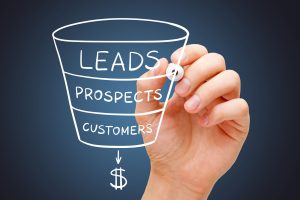The integration of Artificial Intelligence (AI) in digital marketing has revolutionized how businesses approach their online presence. This article explores the transformative impact of AI on digital marketing, with a focus on Search Engine Optimization (SEO) strategies. We’ll examine how Evolved Designs employs AI to enhance digital marketing tactics, ensuring businesses stay ahead in an ever-evolving digital landscape.
Understanding AI in SEO
AI technologies like machine learning and natural language processing have become pivotal in modern SEO strategies. They offer sophisticated methods for analyzing user behavior, predicting trends, and personalizing content. This section delves into:
- Predictive Analytics: Leveraging AI to foresee market trends and user preferences.
Predictive Analytics, powered by AI, is transforming the way businesses approach market trends and user preferences. By analyzing vast datasets, AI can forecast upcoming trends, enabling marketers to tailor their strategies proactively. This not only enhances user experience but also ensures content relevancy and timely engagement with the audience.
- Content Optimization: Using AI to tailor content to match user intent and search engine algorithms.
AI’s ability to understand and match user intent with search engine algorithms is pivotal in content optimization. Tools powered by AI analyze user behavior, search patterns, and even the subtleties of language to ensure that content is not only keyword-rich but also contextually relevant, enhancing both user engagement and search engine rankings.
- Automated Keyword Research: Employing AI tools to discover and rank valuable keywords.
Automated Keyword Research via AI tools is revolutionizing SEO by making keyword discovery and ranking more efficient and accurate. These tools can sift through massive data sets to identify high-potential keywords based on search volume, competition, and relevance, offering a strategic edge in content planning and optimization.
Incorporating AI into these aspects of SEO allows for a more nuanced and effective approach to digital marketing. Evolved Designs is at the forefront of this transformation, leveraging AI to ensure that their clients’ digital strategies are not just current but also future-ready.
AI-Driven User Experience and Web Design
AI’s influence in User Experience (UX) and Web Design is pivotal, transforming these key components of effective SEO. By leveraging AI-driven insights, businesses can create highly personalized, intuitive, and responsive web experiences that align closely with user expectations. AI allows for real-time adjustments to design elements based on user behavior, ensuring that the site continuously evolves to meet the needs of its audience. Whether through dynamic content generation, automated A/B testing, or predictive analytics, AI significantly enhances the way users interact with a website, improving both engagement and conversion rates. Additionally, AI’s ability to analyze vast amounts of data enables more informed decisions about layout, navigation, and functionality, ensuring that the design is optimized not just for aesthetics, but for performance and user satisfaction.
Furthermore, AI is revolutionizing web accessibility, making it easier for businesses to create websites that are inclusive and compliant with international standards. Automated tools can help detect and correct issues related to accessibility, such as alt-text for images or ensuring screen reader compatibility. This not only enhances the user experience for all visitors but also contributes to SEO, as search engines increasingly prioritize accessibility features in their ranking algorithms.
Incorporating AI into UX and web design also improves site speed and performance, critical factors in SEO rankings. AI tools can predict and address potential slowdowns or technical issues before they negatively impact the user experience. Ultimately, AI-driven UX and web design create seamless, adaptive, and responsive websites that engage users, enhance SEO, and drive measurable business results.
Customized User Experiences through AI
AI enables the creation of highly personalized user experiences by analyzing vast amounts of user data, such as browsing history, past interactions, and preferences. This data allows AI systems to dynamically customize website interfaces and content for each visitor in real time, ensuring that users receive a unique experience that caters to their specific needs and interests. Key benefits include:
- Personalized Product Recommendations: AI analyzes past purchases and browsing behavior to recommend products that are most relevant to the user, increasing the chances of conversions and customer satisfaction. These recommendations evolve as the user interacts with the site, continually refining the suggestions based on their behavior.
- Dynamic Content Customization: AI-powered websites can change the layout, imagery, and content messaging based on a user’s demographic, location, or past behavior. For example, returning visitors may see different content compared to first-time visitors, ensuring a more engaging and contextually relevant experience for each user.
- Behavioral Targeting: AI tracks real-time user behavior, such as the amount of time spent on certain pages or the actions taken within the site, to adapt and display more targeted offers or suggestions. This level of responsiveness boosts user engagement by addressing immediate user needs or concerns.
- Predictive Personalization: AI systems use predictive analytics to anticipate a user’s next move or interest based on patterns in their behavior. This could include proactively recommending content or products the user is likely to explore, streamlining the user journey and reducing friction.
- Adaptive Interfaces: AI can adapt the website’s interface to fit user preferences, such as adjusting navigation menus based on frequently visited sections or displaying preferred themes or colors. This creates a more intuitive experience that aligns with the user’s personal preferences, making navigation smoother and more enjoyable.
- Continuous Learning and Improvement: AI-driven personalization doesn’t stop at initial interactions. By continuously learning from user data, AI refines individual experiences over time, ensuring that the website remains relevant and engaging as the user’s preferences, behavior, and needs evolve.
AI-Driven Chatbots and Assistants
AI-powered chatbots and virtual assistants offer instant, intelligent responses to user inquiries, facilitating better interaction and support, thereby increasing overall user engagement on the website.
- 24/7 Availability: Unlike human agents, AI chatbots are available 24/7, providing users with immediate responses to their questions, regardless of the time or day. This continuous availability helps reduce wait times and ensures users stay engaged without frustration, improving overall user experience.
- Instant, Contextual Responses: AI-powered assistants can provide instant answers that are contextually relevant based on the user’s previous interactions, search history, and specific inquiries. This helps guide users efficiently through their journey on the website, addressing concerns or questions at the right moment.
- Multilingual Support: AI chatbots can be programmed to interact in multiple languages, breaking down communication barriers and making websites more accessible to a global audience. This enhances engagement for international visitors, ensuring they receive personalized support in their native language.
- Proactive Assistance: AI-powered bots can proactively engage users by offering assistance or recommendations based on their behavior, such as offering help when a user lingers on a specific page or providing product suggestions when they’re browsing through categories. This proactive engagement drives conversions and encourages users to explore more of the site.
- Handling Complex Queries: With advancements in natural language processing (NLP), AI chatbots can handle more complex, multi-part queries, offering detailed answers and even guiding users through intricate processes, such as booking a service or making a purchase, without the need for human intervention.
- Seamless Handover to Human Agents: When a query requires further assistance, AI chatbots can seamlessly escalate the conversation to human agents, ensuring that users receive high-quality support at every stage without feeling ignored or having to repeat their issues.
- Enhanced User Insights: AI chatbots can gather and analyze user data in real-time, providing insights into common issues, preferences, and behaviors. This data can then be used to improve website functionality, content, and future engagement strategies, ensuring that users’ needs are continually met.
Intelligent Web Design
- Dynamic and Adaptive Design: AI is employed to develop dynamic website designs that adapt to both user behaviors and preferences. This results in websites that are not only visually appealing but also highly functional and user-centric.
- Evolving with Market Trends: AI’s role in web design is continuously advancing. It now includes the capability to alter website layouts in real-time based on user interaction, market trends, and technological advancements. This ensures that websites remain relevant and offer an optimized user experience continuously.
In summary, AI is reshaping the landscape of web design and UX, going beyond traditional personalization to offer real-time adaptability and intelligent interaction. This evolution is crucial for maintaining effective, user-friendly websites that align with evolving market trends and user expectations.
Integrating AI and LLMs in Web Development and SEO
The integration of AI and Large Language Models (LLMs) is revolutionizing web development and SEO, transcending mere automation to bring unprecedented intelligence and efficiency.
Enhanced User Interaction
- AI-Driven Chatbots: These sophisticated tools vastly improve customer service by providing instant, accurate responses to user queries, enhancing engagement and satisfaction.
- Personalized Content Delivery: AI algorithms analyze user behavior and preferences, enabling the delivery of tailored content that resonates with individual users, significantly boosting user experience and website relevance.
AI in Analytical Decision Making
AI’s role in data analysis and decision-making is transformative. By harnessing AI, businesses gain profound insights into user data and SEO performance, leading to more informed and strategic decisions. This data-driven approach ensures that SEO efforts are aligned with actual user behavior and market trends, increasing the effectiveness of digital marketing campaigns.
LLMs in Content Creation
- Understanding User Intent with NLP: LLMs employ Natural Language Processing to deeply understand user intent, allowing for the creation of content that precisely addresses user needs and questions.
- Automated Keyword Optimization: These models automatically optimize content for relevant keywords, ensuring high SEO value without compromising natural language quality.
- Diverse Content Formats: LLMs aid in creating a variety of content formats like blogs, FAQs, and articles, each optimized for both user engagement and search engine visibility.
Improved Accessibility and Compliance
AI also plays a crucial role in ensuring websites are accessible and compliant with various standards. Automated tools can scan and suggest improvements to make web content accessible to all users, including those with disabilities, ensuring a broader reach and ethical web practices.
The synergy of AI and LLMs in web development and SEO is ushering in a new era of technology-driven efficiency and quality. This integration is not only streamlining processes but also enhancing the relevance and engagement of web content, ensuring platforms are intuitive, user-friendly, and in sync with the dynamic demands of search engines and users alike.
AI in Link Building and Backlink Analysis
AI has significantly transformed the process of link building, a crucial element in the intricate world of SEO. Traditionally, link building required manual outreach and a deep understanding of relevant, authoritative sources, making it time-consuming and labor-intensive. However, with AI, the process has become more efficient, accurate, and data-driven. AI-powered tools can analyze vast amounts of data, identifying high-quality backlink opportunities by assessing domain authority, relevance, and the potential impact on search rankings. AI can also predict which links are most likely to drive traffic and boost a site’s authority, allowing SEO strategies to be more targeted and effective.
Moreover, AI automates many aspects of link building, such as identifying broken links, tracking existing backlinks, and even suggesting new link opportunities based on a site’s content and niche. This automation frees up time for SEO professionals to focus on crafting high-quality content that naturally attracts links, while AI handles the technical aspects of link acquisition and monitoring. By continuously learning from changing algorithms and market trends, AI ensures that link-building efforts remain aligned with the latest SEO best practices, ultimately driving better visibility and search engine rankings.
In addition to efficiency, AI offers enhanced accuracy in link quality evaluation. Rather than merely focusing on the number of backlinks, AI assesses their quality, relevance, and long-term viability, ensuring that businesses build a strong, sustainable backlink profile that enhances credibility and boosts SEO performance. As search engines become more sophisticated, AI’s role in refining link-building strategies becomes indispensable for businesses aiming to stay competitive in search rankings.
Identifying Potential Link-Building Opportunities
- Comprehensive Source Analysis: AI algorithms meticulously analyze various sources across the internet, identifying viable backlink opportunities. This analysis goes beyond just finding relevant websites; it involves understanding the context and authority of potential link sources.
- Evaluating Link Quality: AI systems assess the relevancy, quality, and potential traffic benefits of links, ensuring a qualitatively superior backlink profile.
Monitoring Backlink Health
- Ongoing Backlink Assessment: AI tools continually monitor the health of existing backlinks, evaluating factors like link durability, relevance over time, and the authority of linking sites.
- Detecting Environmental Changes: These tools can identify shifts in the link environment, such as broken links or changes in the credibility of linking sites, ensuring the backlink profile’s effectiveness and robustness.
In conclusion, AI is a game-changer in link building for SEO, providing businesses with strategic, results-oriented approaches to link acquisition and maintenance, thus enhancing overall SEO performance.
Shifting Marketing Paradigms with AI
The integration of AI in marketing is driving a significant shift in how businesses approach their strategies. This transformative technology allows for more dynamic and adaptable marketing methods, driven by in-depth data analysis. AI enables real-time responsiveness to market trends and consumer behaviors, allowing businesses to personalize their marketing efforts more effectively. This shift to AI-driven marketing means companies can now anticipate customer needs, tailor their messaging more precisely, and respond to market changes swiftly, ensuring they remain competitive and relevant in a rapidly evolving digital landscape.
Ethical Considerations in AI-driven Marketing
As AI becomes increasingly embedded in digital marketing, it brings forth critical ethical considerations. This section explores the importance of responsible AI use, particularly in the handling of user data and privacy. The ethical deployment of AI in marketing requires transparency in how consumer data is used, adherence to privacy laws, and ensuring unbiased decision-making by AI systems. Companies must also consider the implications of AI on consumer autonomy and avoid manipulative practices. Addressing these ethical challenges is crucial for maintaining consumer trust and ensuring the long-term viability of AI in marketing.
Sustainable AI Implementation
The sustainable implementation of AI in marketing is essential for its long-term success. This part of the discussion focuses on integrating AI into marketing strategies in a way that is effective, scalable, and adaptable to future changes. It involves choosing AI solutions that are not only powerful but also flexible enough to evolve with technological advancements and market shifts. The section also addresses the importance of training teams to work with AI tools and making strategic decisions that align AI implementation with broader business goals and ethical standards. Sustainable AI practices ensure that the technology remains an asset for businesses in the long run, driving continuous growth and innovation.
Conclusion
In conclusion, the integration of Artificial Intelligence (AI) in digital marketing and web development is a transformative force, reshaping how businesses interact with their customers and manage their online presence. From enhancing search engine optimization through advanced algorithms to automating and personalizing marketing efforts, AI is at the forefront of this digital revolution. Companies like Evolved Designs are leading the way in leveraging AI to offer tailored, efficient, and forward-thinking solutions. As AI continues to evolve, its role in digital strategies becomes more central, ensuring that businesses can thrive in an increasingly competitive and dynamic digital landscape.


